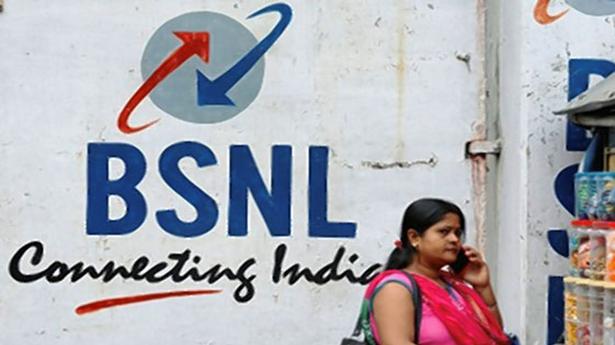
Explained | BSNL and MTNL’s current performance
The Hindu
Telecom Minister Ashwini Vaishnaw had informed Lok Sabha earlier in March that BSNL was making operating profits and was a stable entity. Separately, it was informed that there was no proposal to disinvest MTNL or BSNL.
The story so far: Telecom Minister Ashwini Vaishnaw, during the recently-concluded Budget session of the Parliament, had said the state-owned telecom operator, BSNL, was now a stable entity and making operating profits. Further, the Telecom Minister informed the House that the telecom services provider would soon be able to roll out its home-grown radio and core 4G network.
Operating profit refers to the revenue remaining with a business after subtracting its variable and fixed operating costs. In contrast to net profit, it accounts for debt, one-time costs, and taxes.
In 2019, the Union Cabinet had approved a proposal to revive BSNL and MTNL which included measures such as a merger of the two entities, reducing employee-related costs, restructuring debt by raising bonds through sovereign guarantees, monetisation of assets, and administrative allotment of spectrum for providing 4G services throughout India.
Earlier this month, Minister of State for Communications Devusinh Chauhan had informed the Rajya Sabha that the merger of the state-owned telecom operators had been deferred owing to financial reasons including high debt of MTNL. Additionally, he said there was no proposal for disinvesting the two public sector undertakings (PSUs).
Merger: Former Minister of State for Communications Sanjay Dhotre had said in Lok Sabha in 2020 that a merger would help the entities acquire a pan-India footprint, create synergy in operations, reduce fixed costs and overheads, enable conditions for sharing of technical infrastructure, and enhanced enterprise business.
“Since MTNL is operating in metros of Delhi and Mumbai and BSNL operates in rest of India, merger will help in Pan-India footprint and synergy in operations,” the then Minister of Communications Ravi Shankar Prasad had said in the Rajya Sabha earlier.
The merger was expected to be completed in 18-24 months.

 Run 3 Space | Play Space Running Game
Run 3 Space | Play Space Running Game Traffic Jam 3D | Online Racing Game
Traffic Jam 3D | Online Racing Game Duck Hunt | Play Old Classic Game
Duck Hunt | Play Old Classic Game











